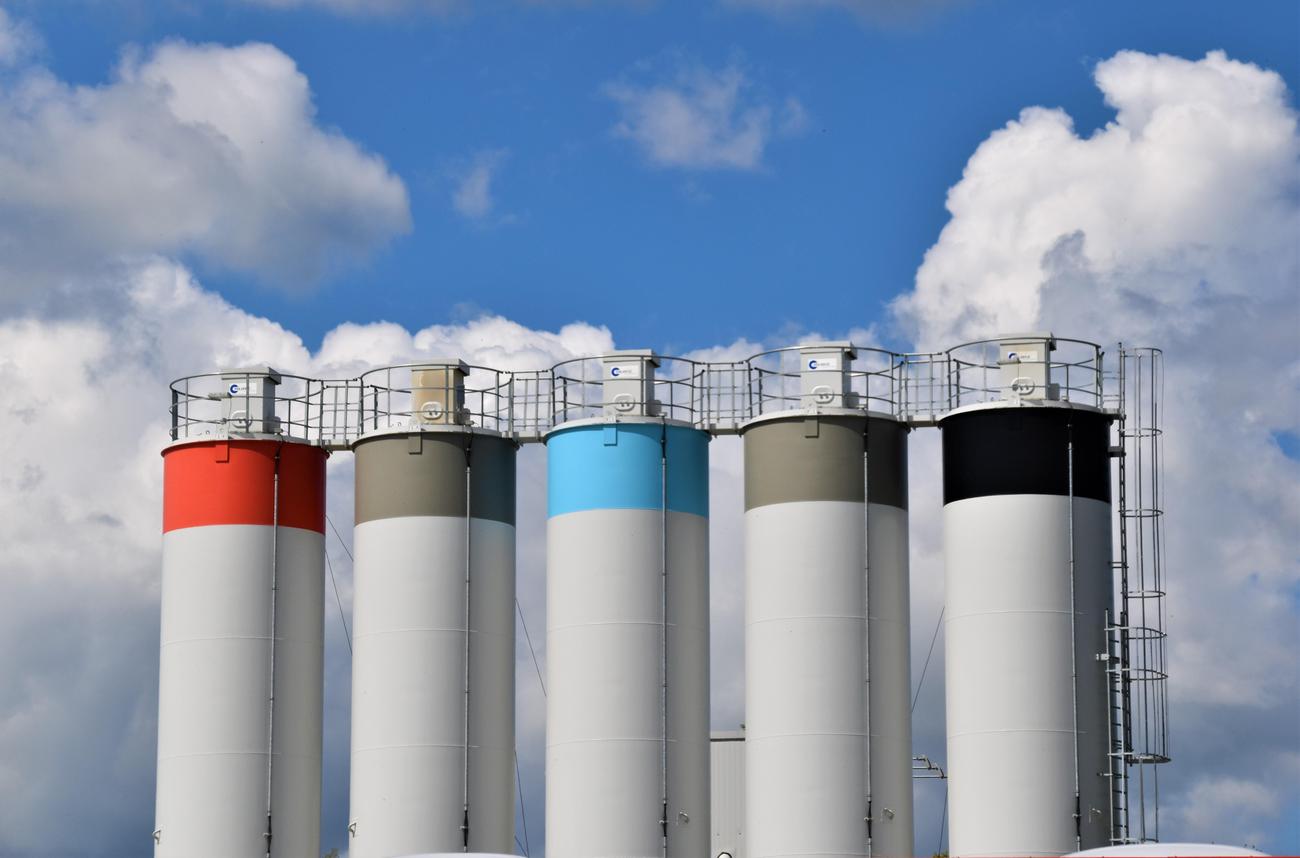Is your curiosity about chemical engineering piqued? Be ready to have your mind blown as we explore some previously unknown information about this fascinating topic. As a chemical engineer with years of experience and a penchant for mystery, I’ve dove headfirst into the nitty-gritty of process design, optimization, and study. Chemical engineering is at the heart of many exciting fields, from pharmaceuticals to energy. Come with me on this fascinating adventure as we discover the incredible influence of chemical engineering on our world and some genuinely mind-boggling information.

Surprising Facts About Chemical Engineering
Chemical engineering is an interesting profession since it combines science and technology. These fascinating discoveries will definitely stimulate your curiosity and improve your admiration for the miracles of chemical engineering, whether you are new to the topic or a seasoned practitioner.
1. George E. Davis: The Father of Modern Chemical Engineering
Most of us are familiar with the names of famous engineers and innovators like Thomas Edison and Nikola Tesla, but George E. Davis’s may be unfamiliar. Davis, however, is widely recognized as the precursor to today’s chemical engineering. His groundbreaking research in the late 19th century paved the way for this discipline and influenced the development of modern industry. Davis’s ground-breaking concepts and methods continue to have an impact on the field of chemical engineering.
“George E. Davis laid the cornerstone of modern chemical engineering, forever shaping the world of industry.”
2. The Distinction Between Chemical Engineering and Chemistry
Chemical engineering and chemistry are sometimes used interchangeably, but they are actually two quite different fields. Chemical engineering applies the concepts of chemistry to real-world industrial processes, while chemistry is concerned with the study of substances, their properties, and their interactions. Chemical engineers provide effective means of production, enhance the effectiveness of chemical reactions, and find elegant solutions to difficult engineering problems by applying their knowledge of chemistry.
3. Cutting-Edge Software Tools in Chemical Engineering
Chemical engineers, contrary to popular assumption, use more than only test tubes and flasks in their work. Computer-Aided Design (CAD) and other sophisticated programs are now indispensable to their work. Chemical engineers can model, simulate, and create 3D visualizations of chemical processes and equipment using these programs. They can save time, money, and resources by utilizing technology to create precisely and efficiently crafted procedures.
4. Ensuring Safety and Quality in Millions of Products
Did you know that chemical engineers perform an important role in guaranteeing the quality and security of countless commonplace items? These people labor tirelessly behind the scenes to ensure that the things we use (from medicines to foods to cleaning supplies to cosmetics) all adhere to rigorous quality standards. Production methods that ensure the safe, effective, and reliable manufacture of a wide variety of consumer goods require the knowledge and skills of chemical engineers.
5. Chemical Engineering: Essential for Product Development
Chemical engineers may not be the first people who come to mind when you think about R&D teams. Nonetheless, they are crucial to the creation of products across many sectors. Chemical engineers are in a unique position to evaluate the viability of novel product concepts, create scalable processes, and optimize manufacturing in order to bring these items to market.
“Chemical engineers are the unsung heroes behind the successful development and production of countless products that shape our daily lives.”
6. The Backbone of Process Industries
Chemical engineers are the unsung heroes of many different process industries. Their knowledge is essential for ensuring the continued viability, efficiency, and safety of businesses such as petrochemical plant design and operation, renewable energy research and development, and waste management process optimization. Because they are at the forefront of innovation, resource conservation, and environmental stewardship, chemical engineers have a significant impact on our culture’s trajectory into the future.
7. A Tapestry of Engineering Disciplines
Chemical engineering is sometimes described as a “hybrid” field since it draws upon concepts and methods from so many other subfields of engineering. It combines ideas from many different branches of engineering into one cohesive system, including mechanical, electrical, civil, and more. Chemical engineers can take on interdisciplinary problems because of their ability to think beyond the box.
8. Flexibility and Versatility in Career Paths
Career options in chemical engineering are diverse and interesting. Pharmaceuticals, energy, oil and gas, food processing, materials science, environmental engineering, and finance are just few of the many fields open to students at all levels of education. Chemical engineers are in high demand across sectors because of their breadth of knowledge and ability to solve complex problems. Because of their adaptability, they will have exciting and rewarding professions.
9. Mastering the Art of Large-Scale Process Design
The ability of chemical engineers to plan and oversee massive operations is one of the field’s most impressive features. Chemical engineers are the masters of scale, whether they are constructing a large refinery or an efficient chemical manufacturing facility. They are skilled at conceiving and executing complex systems that improve productivity, make better use of available resources, and reduce negative effects on the environment.
10. Heroes of Process Control
Successful manufacturing relies heavily on precise process control. When it comes to assuring the security and efficacy of complicated operations, chemical engineers are indispensable. Chemical engineers manage industrial operations within operational limits by using advanced control systems, monitoring key process variables, and devising new solutions; this improves productivity, safety, and sustainability.
“Chemical engineers are the unsung heroes who make process control a reality, ensuring the smooth and safe operation of our industrial systems.”
11. Chemical Engineering: Ancient Heritage, Modern Impact
Although the term “chemical engineer” may conjure images of cutting-edge technology, the field actually has ancient roots. In order to create pottery, purify metals, and manufacture medicines, ancient civilizations like the Egyptians and Mesopotamians used basic chemical engineering principles. Chemical engineering has left an unmistakable influence on human history, one that is still developing and molding our planet.
12. A Journey to Becoming a Chemical Engineer
It takes hard work and determination to enter the field of chemical engineering. A degree in chemical engineering can be earned in three to four years of full-time study. Thermodynamics, fluid mechanics, process design, and chemical kinetics are just few of the topics that get a thorough examination during this time. This all-encompassing program gives aspiring chemical engineers a solid foundation on which to build a successful career.
13. Diverse Applications of Chemical Engineering
The influence of chemical engineering may be felt across many areas and industries. Chemical engineers work in a wide variety of fields, including medicine, ecology, materials science, and energy production, all of which benefit greatly from their expertise. Their knowledge is essential to the progress of many fields, including pharmaceuticals, environmental protection, and alternative energy. Chemical engineers can make a positive impact on society and the world at large.
14. Problem Solvers with a Chemical Twist
Chemical engineering is essentially problem-solving with a distinctly chemical spin. Chemical analysis and problem solving are important to the work of chemical engineers. They have a good understanding of chemical reactions and processes and use this knowledge to come up with novel solutions that improve productivity, safeguard workers, and propel development across many sectors.
“Chemical engineers are the ultimate problem solvers, using their chemical expertise to overcome engineering challenges and pave the way for a better future.”
15. The Marvels of Process Development and Plant Design
Among the many surprises in chemical engineering, process development and plant design stand out as remarkable achievements. Chemical engineers undertake the daunting task of transforming concept ideas into tangible reality. They meticulously design processes, select appropriate equipment, and engineer functional plants capable of operating smoothly. This fascinating aspect of chemical engineering showcases the incredible ability of these professionals to bridge the gap between theory and practical implementation.
With each of these surprising facts about chemical engineering, it becomes abundantly clear that the field holds boundless potential and shapes countless aspects of our modern lives. From the development of life-saving drugs to the optimization of manufacturing processes, chemical engineers continue to push boundaries, making the seemingly impossible become possible. So the next time you encounter a product, a process, or an innovation that leaves you in awe, take a moment to appreciate the surprising marvels of chemical engineering behind it.
Chemical engineering is a fascinating field that involves the application of scientific and mathematical principles to design and create processes for the production of various products. If you want to learn some fun facts about chemical engineering, click here.
FAQ
Question 1: Who is credited as the founder of modern chemical engineering?
Answer: George E. Davis is credited as the founder of modern chemical engineering.
Question 2: How is chemical engineering different from chemistry?
Answer: Chemical engineering is often confused with chemistry, but it is distinct. While chemistry focuses on the study of chemical substances and reactions, chemical engineering applies the principles of chemistry to design processes and operate plants at a large scale.
Question 3: What software do chemical engineers use for process design?
Answer: Chemical engineers use software like Computer-Aided Design (CAD) to design accurate and efficient processes.
Question 4: What is the role of chemical engineers in ensuring product safety?
Answer: Chemical engineers are responsible for the safety of millions of products. They play a crucial role in the product development process by incorporating safety measures to ensure that products are safe for use.
Question 5: What industries can graduates and undergraduates in chemical engineering work in?
Answer: Graduates and undergraduates in chemical engineering can work in various sectors, including pharmaceuticals, energy, manufacturing, food, and environmental protection. Chemical engineers have versatile expertise that is applicable to a wide range of industries.
“`json
“`
- Star Ring Trends: Etsy vs Amazon - March 28, 2025
- Boost Pollinator Habitats: Baby Blue Eyes Sustainable Farming Guide - March 28, 2025
- Protect Big Black Bears: Effective Conservation Strategies - March 28, 2025
















